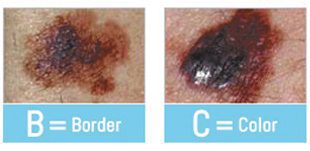By Afton Patterson


They are trained to assess a patient’s condition and help them regain their maximum functional mobility as well as independence. Treatment is highly personalized and specific to each individual’s ability.
Sometimes it isn’t practical or even possible to leave home to receive physical therapy. If that is the case for you or a loved one, at-home physical therapy may be a good solution. This service is available to patients who are unable to leave home to attend therapy.
The reasons that one may need in-home PT include:
• Leaving home is a health risk
• Mobility is limited and the patient is unable to travel to get therapy
• Transportation is limited
• Convenience
Physical therapy helps to decrease the recovery time and the severity of disabilities resulting from accidents or chronic conditions such as heart failure. At-home PT sessions help patients increase their physical activity and teach them to make better lifestyle choices if weight loss or high blood pressure is an issue. The PT provides an exercise program that helps to improve mobility and decrease future risk of accidents or decrease the risk of cardiac events.
Conditions that may make in-home physical therapy a good option:
• ALS
• Parkinson’s disease
• Multiple sclerosis (MS)
• Recovery from stroke
• Recovery from surgeries like hip or knee replacement
• Recovery from fractures
• Recovery from a heart attack
How does physical therapy fit in with other home-care services?
Your loved one may be in need of PT services at home or other health care that is specific to their needs and abilities, but they may also need help with the day-to-day tasks of life. It is important to get them the help that they need in terms of household maintenance or even grooming. Sometimes, they may even just need someone to sit and talk to or play cards with. If that is the case, home care is another option available to those who have trouble leaving the house.
Home care encompasses a wide variety of services that can be given in a patient’s home following an illness, injury, or because of an on-going disease such as ALS. Home care is convenient and effective when compared to getting hospital or nursing facility care. It can also be cheaper.
Home care providers offer services like homemaking, companion care, and safeguard visits.
Homemaking visits might include:
• Light housekeeping
• Making the bed/changing the linens
• Laundry
• Answering the phone and door
• Preparing meals
• Taking out the trash
• Writing letters or reading mail
• Medication reminders
Companion care might include:
• Grocery/medication pick up/ errands
• Non-medical transportation
• Assist at doctor’s appointments
• Going for walks and doing other outdoor activities
• Reading the newspaper or a book
• Playing cards or board games
• Watching movies together
• Attend social functions, church, lunch with friends
Safeguard visits might include:
• Checking toiletries, food supply and possible food spoilage
• Creating shopping list
• Taking out trash
• Concierge services (assist with appointment scheduling, etc.)
• Companionship – conversation, play a game of cards
• Checking and watering indoor plants
• Checking windows, locks and lights
If you have a loved one who is receiving home health care services like PT or Nursing and may be in need of the other home care services mentioned here, contact Highest Honor Home Care by sending an email to info@highesthonorhomecare.com or by calling 941.204.8636. They offer service to Charlotte, DeSoto, and Sarasota counties. Their team of highly qualified professionals would be glad to talk to you and set you up with a free consultation and give you more information about how home care could work for you.
Highest Honor Home Care
941-204-8636
www.highesthonorhomecare.com
 Southwest Florida's Health and Wellness Magazine Health and Wellness Articles
Southwest Florida's Health and Wellness Magazine Health and Wellness Articles

